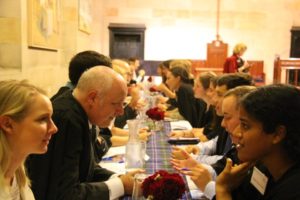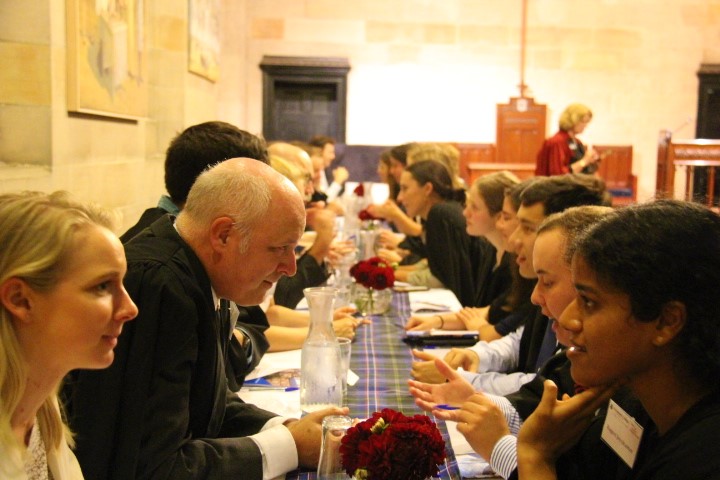Professional Development – “What I Learned & What I Do”
On Thursday 2nd May, St Andrew’s College held its first Professional Development Program event. The theme of this event was “What I Learned & What I Do”. This theme is the result of research conducted at the end of 2018, where a focus group revealed a number of issues. Three key issues were that students want:
- face-to-face conversations with individual mentors;
- mentors from diverse industries and sources (not just alumni); and
- mentors who had diverse career paths.
To accommodate these criteria a new event format was developed: “TURBO NETWORKING”.
Guests were met at the main entrance and chaperoned by their assigned student host/hostess to drinks in the Senior Common Room. There, vibrant conversations took place with students acting as perfect hosts, introducing guests to other students and guests. To assist networking, a Professional Development Program booklet was made for guests and students with photos and biographies of all attendees.
Guests were then taken to the Dining Hall for a three course formal dinner and the lively conversation continued. Ian Smith led grace, which was followed by a speech from our Alumni Secretary Francesca Spry (Fr 2017). Francesca welcomed guests and students, and thanked all who assisted in the event. Dr Diane Spencer-Scarr (Professional Development Officer) then briefly provided background to the progression of the Professional Development Program and how its structure has been based on academic research.
After the main course, Benjamin Stacy (Fr 2015, Assistant Researcher within the Professional Development Program) spoke in more detail about the challenges facing the millennial cohort and how our program is addressing these challenges. Benjamin also explained how the “TURBO NETWORKING” aspect of the evening worked. “Our residents will show our guests to the Chapel and each of our professionals will have a designated seat on the outside of the tables,” he explained. “For our guests and students, you will have two and a half minutes to briefly introduce yourselves, and then our guests will be able to provide an insight into how, or if, what you learned at uni supported you in your career path. Students, ask plenty of questions, and try and relate what you’re studying to different professional contexts.”
Benjamin’s concise and professional approach as Master of Ceremonies set the tone. From the first rotation to the last, there were non-stop conversations. By the end of the evening both students and guests were satiated with ideas and information. The evening was a tremendous success and positive feedback has been received from both students and guests. This format will certainly be used again – we will however have longer rotation times to allow for more in-depth conversation.
Dr Diane Spencer-Scarr
Professional Mentoring Project Officer


